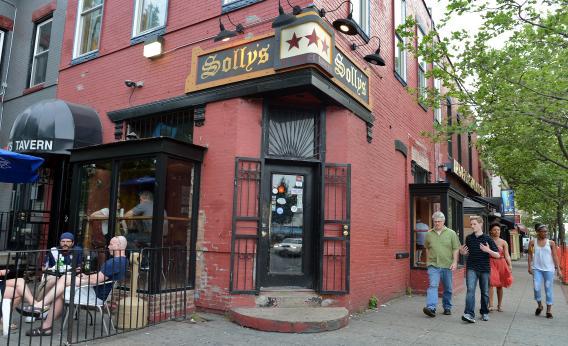When I heard that Esquire’s “Best Bars in America” feature included a list of D.C. drinking establishments you should check out, I had a moment of panic. Then I read the feature with relief.
While the establishments they recommend are all good places to go, none of them is among my go-to spots or even in my neighborhood. Their one dead-on recommendation is for the Columbia Room, which is great, but far too schmancy to frequent very often, and it’s a reservations-based spot, so you don’t really need to worry about crowding. But the whole emotional roller coaster I experienced here highlights one of the features of the industry. Some domains have network effects—the more iPhone users there are, the more time people spend developing iPhone apps and the more useful iPhones become—while others have anti-network effects. As long as your favorite bar or restaurant earns enough revenue to pay the rent, the last thing you want is for it to get a lot of publicity and new customers. That just leads to deteriorating quality through overcrowding or price increases. Either way, that magazine write-up just drove your real wages down.
That all seems obvious and maybe a little trivial, but as I’ve been saying for a while, with the more and more people working in the food service sector, we need to think about its economics more seriously.
The issue is that if demand for Pepsi or LeBron James signature sneakers goes up, we just go make more Pepsi or more signature sneakers. The company gains more profit, so it’s happy. But it also has to hire more people or give its workers more hours, so they’re happy. And the customers are happy since they’re getting the products they want. It’s the virtuous circle of capitalism. With successful bars, though, you can’t really expand output at the margin; you can only raise prices. That makes the bar owner happy since his profits go up. And in the longer term it makes landlords happy since they can raise rent. But it doesn’t increase the number of happy customers and it doesn’t increase employment either. You’re looking at a dysfunctional political economy dominated by rent-seeking in which “in the know” customers hope that other customers don’t find out about high-quality options.
To make things better, you need to make it easier to get liquor licenses but also perhaps learn to love chains. If demand for ShopHouse skyrockets, it’ll accelerate the pace at which new outlets open and add lots of jobs. It’s the lovable local bar or restaurant whose inelastic supply creates the bad economics.
